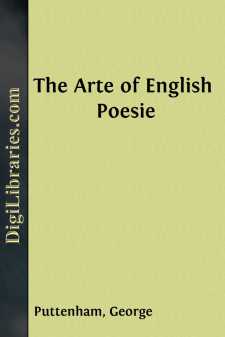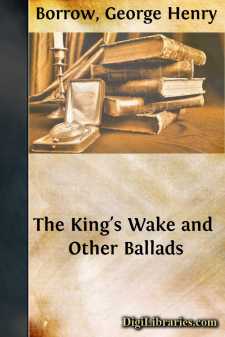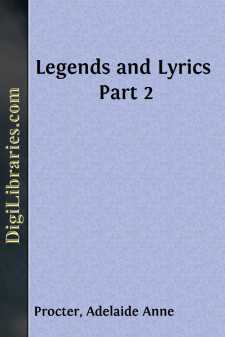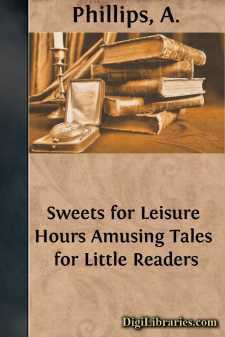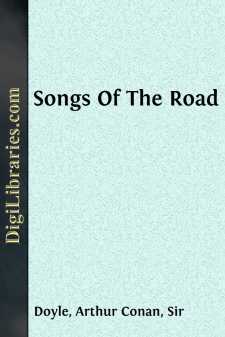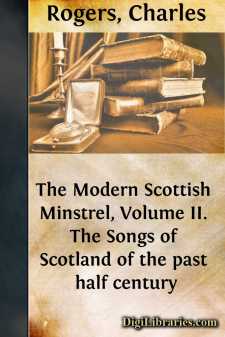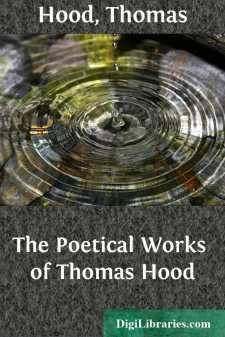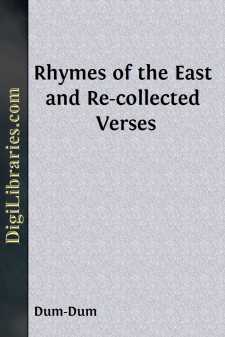Poetry
- American 96
- Ancient, Classical & Medieval 41
- Asian 15
- Australian & Oceanian 11
- Canadian 11
- Caribbean & Latin American 5
- Children's Poetry & Nursery rhymes 51
- Continental European 11
- English, Irish, Scottish, Welsh
- General 483
- Inspirational & Religious 7
- Middle Eastern 3
English, Irish, Scottish, Welsh Books
Sort by:
by:
George Puttenham
CHAP. I. What a Poet and Poesie is, and who may be worthily sayd the most excellent Poet of our time. A Poet is as much to say as a maker. And our English name well conformes with the Greeke word: for of [Greek: poiein] to make, they call a maker Poeta. Such as (by way of resemblance and reuerently) we may say of God: who without any trauell to his diuine imagination, made all the world of nought, nor...
more...
THE KING’S WAKE To-night is the night that the wake they hold,To the wake repair both young and old. Proud Signelil she her mother address’d:“May I go watch along with the rest?” “O what at the wake wouldst do my dear?Thou’st neither sister nor brother there. “Nor brother-in-law to protect thy youth,To the wake thou must not go forsooth. “There be the King and his warriors gay,If me...
more...
VERSE: A LEGEND OF PROVENCE The lights extinguished, by the hearth I leant,Half weary with a listless discontent.The flickering giant-shadows, gathering near,Closed round me with a dim and silent fear.All dull, all dark; save when the leaping flame,Glancing, lit up a Picture’s ancient frame.Above the hearth it hung. Perhaps the night,My foolish tremors, or the gleaming light,Lent power to that...
more...
by:
A. Phillips
THE FROZEN BIRD.See, see, what a sweet little prize I have found!A Robin that lay half-benumbed on the ground:Well hous’d and well fed, in your cage you will sing,And make our dull winter as gay as the spring.But stay,—sure ’tis cruel, with wings made to soar,To be shut up in prison, and never fly more—And I, who so often have long’d for a flight,Shall I keep you prisoner?—mamma, is that...
more...
A HYMN OF EMPIRE (Coronation Year, 1911) God save England, blessed by Fate,So old, yet ever young:The acorn isle from which the greatImperial oak has sprung!And God guard Scotland's kindly soil,The land of stream and glen,The granite mother that has bredA breed of granite men! God save Wales, from Snowdon's valesTo Severn's silver strand!For all the grace of that old raceStill haunts the...
more...
by:
Charles Rogers
INTRODUCTION TO The Modern Gaelic Minstrelsy. The suspicion which arose in regard to the authenticity of Ossian, subsequent to his appearance in the pages of Macpherson, has unjustly excited a misgiving respecting the entire poetry of the Gael. With reference to the elder poetry of the Highlands, it has now been established that at the period of the Reformation, the natives were engrossed with the lays...
more...
by:
Thomas Hood
TO HOPE.Oh! take, young Seraph, take thy harp,And play to me so cheerily;For grief is dark, and care is sharp,And life wears on so wearily.Oh! take thy harp!Oh! sing as thou wert wont to do,When, all youth's sunny season long,I sat and listened to thy song,And yet 'twas ever, ever new,With magic in its heaven-tuned string—The future bliss thy constant theme.Oh! then each little woe took...
more...
by:
Dum-Dum
NOCTURNE WRITTEN IN AN INDIAN GARDEN'Where ignorance is bliss,'Tis folly to be wise.'The time-gun rolls his nerve-destroying bray;The toiling moon rides slowly o'er the trees;The weary diners cast their cares away,And seek the lawn for coolness and for ease.Now spreads the gathering stillness like a pall,And melancholy silence rules the scene,Save where the bugler sounds his homing...
more...
EROS The sense of the world is short,—Long and various the report,—To love and be beloved;Men and gods have not outlearned it;And, how oft soe'er they've turned it,'Tis not to be improved. Ralph Waldo Emerson [1803-1882] "NOW WHAT IS LOVE" Now what is Love, I pray thee, tell?It is that fountain and that wellWhere pleasure and repentance dwell;It is, perhaps, the sauncing...
more...
BOOK I. THE VISION OF THE KING Before the gods that made the godsHad seen their sunrise pass,The White Horse of the White Horse ValeWas cut out of the grass. Before the gods that made the godsHad drunk at dawn their fill,The White Horse of the White Horse ValeWas hoary on the hill. Age beyond age on British land,Aeons on aeons gone,Was peace and war in western hills,And the White Horse looked on. For...
more...


